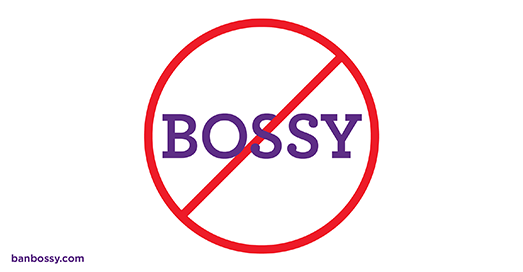Print Edition: March 26, 2014

“Being labelled something matters,” said actress Jennifer Garner, among several famous personalities to speak up in the recent “Ban Bossy” campaign. This particular quote struck me with its simplicity and pointedness, but also with its ambiguity — why does being labelled matter?
Complete with Twitter hashtag (#banbossy) and all the other trappings of the modern “trending” campaign, Ban Bossy was started by chief operating officer of Facebook, Sheryl Sandberg. Part of her inspiration is credited to an experience she had in high school of being called bossy by a teacher. Now there is a website with guides for teachers and parents, a collection of inspirational videos, celebrity attention, and corporate backing — even the Girl Scouts are on board as one of the driving forces.
One campaign video, “I’m not bossy. I’m the boss,” shows a few familiar faces (e.g. Beyoncé Knowles, Jane Lynch) who take turns explaining that “by middle school, girls are less interested in leadership than boys, and that’s because they’re worried about being called bossy.”
When I searched the word “bossy” in Google images, there was indeed gender disparity in the results. The results page was an inundation of “Little Miss Bossy” cartoon images, defensive slogans against being called bossy, photos and drawings of women with their faces scrunched angrily or their fingers pointed in accusation … and a grand total of three men looking “bossy” (out of about 100 images).
According to the campaign, where women are called bossy, men are called assertive and confident.
The people behind this campaign have good intentions. They clearly want to make the world a kinder place for women and to combat gender stereotypes which impact girls’ abilities to succeed as leaders.
However, “trending” campaigns are just that: trends.
In a few weeks, girls and women will still be labelled bossy, pushy, stubborn bitches and whores and cunts who belong in the kitchen — not in the office, and certainly not giving orders.
This campaign oversimplifies a larger problem.
[pullquote]“Violence isn’t a balloon, and neither is inequality. It’s in the air. We’re breathing it.”[/pullquote]
Even if every single person on Earth stopped using the word “bossy” tomorrow, even if it was deeply offensive to utter it, even if we removed it from the dictionary and forgot what it meant — it would not make a difference.
The English language has many words, and if those words fell out of use, more would be invented or appropriated to serve the same purpose.
Remember the Kony 2012 campaign by Invisible Children? Their goal was noble, too: find one obscure war criminal and, by hunting him down, resolve a long history of conflict in Uganda. Apparently, almost four million people pledged their support to the cause.
Yet Kony is still out there and the Lord’s Resistance Army hasn’t gone away.
It’s illogical to think getting rid of one person, or banning a single word, is going to act as a pin popping a balloon. Violence isn’t a balloon, and neither is inequality. It’s in the air. We’re breathing it.
The good part of the campaign is not its slogan or its celebrated proponents, but rather its emphasis on teaching everyone — not just girls — confidence and skill.
We need positive action, not negative action. Instead of relying on buzzwords and hashtags to beat a scapegoat out of our vocabulary and sell some merchandise (you can get an “I’m not bossy. I’m a leader” onesie for your baby), we should be demonstrating what good, thoughtful leaders do.
Bossy is not synonymous with confidence or with being a leader. Good leaders have compassion and initiative and drive; they listen and collaborate; they inspire others to be leaders. They create change by example, not by starting impossible vendettas based on unreachable goals.
Being labelled something does matter, but not because it defines the labelled individual. Labels are a symptom of the system, not the cause.


